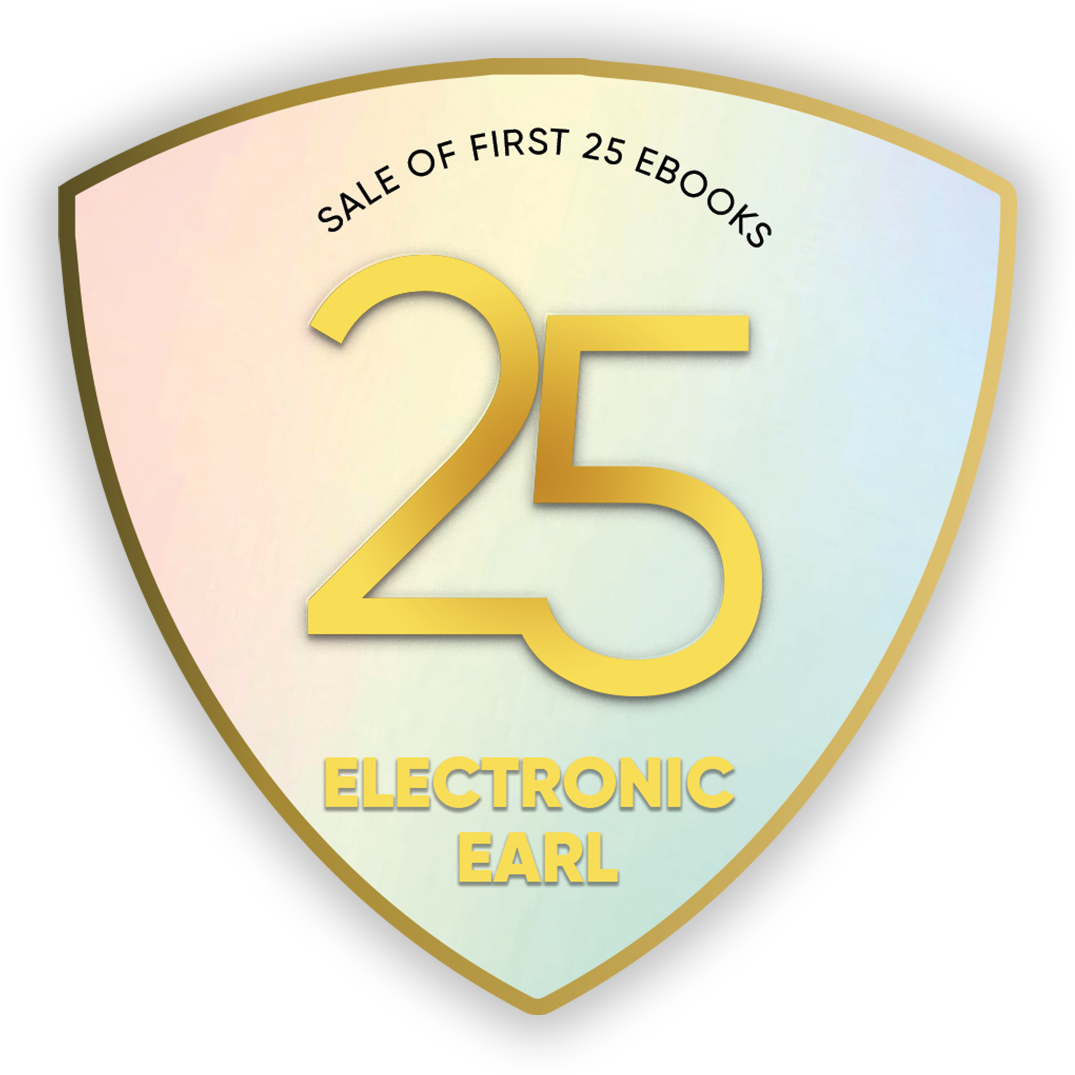
- Discover books
- For Writers
-
For Writers
-
Indie Author Championship
-
Challenges
Writing Contests
- Get Started

"It was a wonderful experience interacting with you and appreciate the way you have planned and executed the whole publication process within the agreed timelines.”
Subrat SaurabhAuthor of Kuch Woh Pal -
PRAVIN KHANDVE
Assistant Professor in Civil Engineering, Spiritual & Motivational Trainer, Author - Employability Skills, Rain Water Harvesting Expert, Environment Consultant,The author is a Graduate in B.E. Civil Engineering and M. Tech in Environment Engineering along with other academic qualifications in – PG Diploma in Business Management, Interior Decoration, Journalism, Information Technology, Office Automation & Financial Accounting, and B. A. in Sociology. He is having Industrial Experience of 8 Years from 1990 to 1998 and Teaching Experience of 24 Years till date and presently working as Vice Principal and Head of Civil Engineering at Prof Ram Meghe College of Engineering & Management, Amravati. He is the founder secretary of Ekatmik Paryavaran Mitra SanRead More...
The author is a Graduate in B.E. Civil Engineering and M. Tech in Environment Engineering along with other academic qualifications in – PG Diploma in Business Management, Interior Decoration, Journalism, Information Technology, Office Automation & Financial Accounting, and B. A. in Sociology. He is having Industrial Experience of 8 Years from 1990 to 1998 and Teaching Experience of 24 Years till date and presently working as Vice Principal and Head of Civil Engineering at Prof Ram Meghe College of Engineering & Management, Amravati. He is the founder secretary of Ekatmik Paryavaran Mitra Sanstha and Executive Editor of the International Journal for Chemical and Physical Sciences. He has participated in 14 National and 6 International Conferences and published 24 Research papers in various International Journals. The author is honored with various awards for Rain Water Harvesting Best Project Award, ISTE Best Presentation Award, UBI Best Teacher Award, ISTE Best Poster Presentation Award, ICI Best Structure Runner-Up Award, IISF Bharat Gaurav Award, Art of Living Jal Doot Award, Amravati Pani Foundation Jal Shakti Abhiyan Award, Industry 4.0 Best Paper Award and IWWA Best Lecture Award. His two Interviews on Water Conservation and Rain Water Harvesting were broadcasted by Amravati Aakash Wani. His other Marathi book titles are – Chikhaldara Tourist Guide, Employability Skill Part-I & II, Effective Study Techniques, Rain Water Harvesting - Need of Hour, and Become an Environment Friends. The author has also published a separate book on Municipal Solid Waste Management & Hazardous Waste management.
Read Less...
Crop your profile image

Basics of Environment Management
Books by PRAVIN KHANDVE
Embark on a comprehensive exploration of environmental management with "Basics of Environmental Management." This enlightening guide takes you on a journey through the intricate web of environmental concerns, policies, and strategies, offering a holistic understanding of the critical field of environmental management. Delve into the fundamentals with an overview of environment management, its definitions, and the pivotal role engineers play in conservation. Un
Embark on a comprehensive exploration of environmental management with "Basics of Environmental Management." This enlightening guide takes you on a journey through the intricate web of environmental concerns, policies, and strategies, offering a holistic understanding of the critical field of environmental management. Delve into the fundamentals with an overview of environment management, its definitions, and the pivotal role engineers play in conservation. Uncover global and India-specific environmental challenges, examining their interconnectedness and exploring sustainable solutions. Navigate the complex landscape of environmental policies, understanding their significance at micro and macro levels, locally, nationally, and globally. Explore the diverse methods employed for policy analysis, from qualitative and quantitative approaches to public policy and economic considerations. Grasp the importance of EMP and Environmental Impact Assessment (EIA), alongside risk assessment, stakeholder involvement, and data-driven decision-making. Discover the tools and technologies driving environmental management, from data-driven decision-making to environmental modeling and simulation. Gain insights into the legal framework governing environmental protection in India, with a detailed examination of key acts and their provisions. Explore the world of Environment Management Systems, including ISO standards, green building certifications, and the crucial role of environmental audits. Understand the roles and functions of key government agencies, such as the Ministry of Environment and Pollution Control Boards, in shaping environmental policies. Explore the diverse roles of local bodies, NGOs, research institutions, and disaster management authorities in environmental governance.
Fundamentals of Disaster Management
Books by PRAVIN KHANDVE
This comprehensive guide comprises twelve illuminating chapters that explore every facet of disaster management, offering a holistic view of the field and its profound importance. This chapter unpacks the essence of disasters, introduces the disaster management framework and cycle, and underscores the paramount importance of disaster management in the unique context of India.
Next chapter elucidates their causes, impacts, and the comprehensive measures
This comprehensive guide comprises twelve illuminating chapters that explore every facet of disaster management, offering a holistic view of the field and its profound importance. This chapter unpacks the essence of disasters, introduces the disaster management framework and cycle, and underscores the paramount importance of disaster management in the unique context of India.
Next chapter elucidates their causes, impacts, and the comprehensive measures in place to mitigate their cataclysmic consequences. Industrial pollution, urban flooding, nuclear radiation, chemical spills, transportation accidents, and the looming specter of terrorist strikes are unveiled. It delves into vulnerability assessment techniques, all while considering the pervasive influence of climate change and ecological fragility on disaster risk.
The multifaceted impacts of disasters are dissected in this chapter, spanning environmental, physical, social, ecological, economic, and political dimensions. The profound impact of disasters on public health and mental well-being takes centre stage. Readers gain insight into the vexing public health challenges during disasters and the pivotal role of mental health and psychosocial support in disaster recovery.
The significant impact of climate change on urban areas is unveiled, highlighting the dire need for resilient urban planning. Readers are ushered into the world of disaster risk reduction, encompassing prevention and mitigation measures, preparedness planning, early warning systems, relief and response strategies, and recovery and reconstruction approaches.
Municipal Solid Waste Management
Books by Pravin Khandve
Municipal Solid Waste Management is an all-encompassing guide that covers the fundamental aspects of solid waste management including type and sources of MSW, factors influencing its generation, and quantity assessment, and then goes on to explore the legal and regulatory framework of waste management. The book provides detailed insights into collection and transfer methods, disposal methods, Pros and cons of different refuse disposal methods, including landfi
Municipal Solid Waste Management is an all-encompassing guide that covers the fundamental aspects of solid waste management including type and sources of MSW, factors influencing its generation, and quantity assessment, and then goes on to explore the legal and regulatory framework of waste management. The book provides detailed insights into collection and transfer methods, disposal methods, Pros and cons of different refuse disposal methods, including landfilling, incineration, and waste-to-energy, considering their environmental impact, cost, and feasibility. The book also delves into the practicalities of solid waste management in India, where waste management is a challenging process due to population growth, urbanization, and poor infrastructure. The book explores the latest trends in SWM, waste-to-energy technologies, circular economy concepts, and the use of digital technologies. It also discusses the impact of waste on human health and the environment, the importance of public awareness in ensuring the success of solid waste management initiatives. Municipal Solid Waste Management is an indispensable guide for anyone interested in waste management, including policymakers, environmentalists, waste management professionals, and academics. With its comprehensive coverage of the subject matter and in-depth analysis of key issues, this book is a must-read for anyone interested in solid waste management.
Hazardous Waste Managment
Books by Pravin Khandve
"Hazardous Waste Management" is a comprehensive guide that discusses the essential aspects of hazardous waste management, including storage, collection, identification, and disposal. The book starts with an introduction to hazardous waste, its definitions, classification, and the need for its management. It then moves on to discuss the various storage and collection methods, equipment used for collection, and the challenges faced by developing countries. The i
"Hazardous Waste Management" is a comprehensive guide that discusses the essential aspects of hazardous waste management, including storage, collection, identification, and disposal. The book starts with an introduction to hazardous waste, its definitions, classification, and the need for its management. It then moves on to discuss the various storage and collection methods, equipment used for collection, and the challenges faced by developing countries. The identification of hazardous waste, its characteristics, identification methods, and management plan components are also discussed in detail. The book covers the quantities of hazardous waste generated, types of hazardous waste, generation rates, and trends in hazardous waste generation, along with legal frameworks for its implementation. The book further delves into hazardous waste minimization strategies, the impact of waste minimization on human health and the environment, and the methods for hazardous waste disposal, including incineration, secured landfill, chemical treatment, bioremediation, recycling, and physiochemical treatment. Finally, the book covers the management of nuclear and e-waste, biomedical and chemical waste management, and emerging issues, advancements, and sustainable practices in hazardous waste management. The book also discusses common treatment, storage, and disposal facilities for hazardous waste management in India. The Book is a must-read for students, professionals, and policymakers involved in environmental science, waste management, and sustainability.

Are you sure you want to close this?
You might lose all unsaved changes.
Select from one of our global stores to continue
 India
India
 Malaysia
Malaysia
 Singapore
Singapore
 UAE
UAE
Warning Message
The items in your Cart will be deleted, click ok to proceed.














